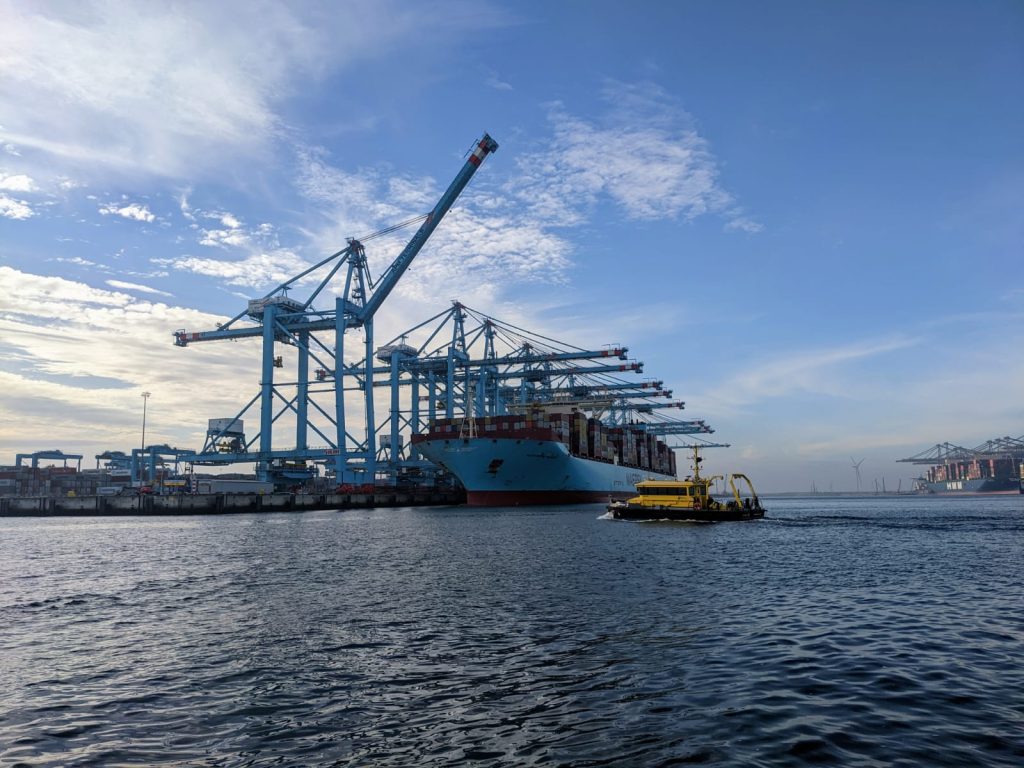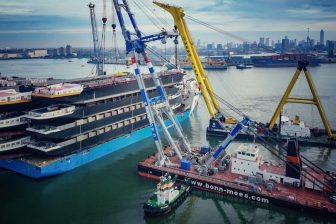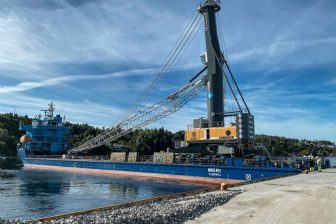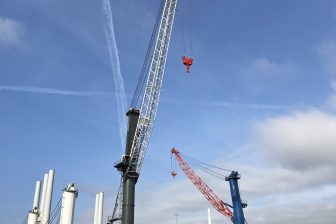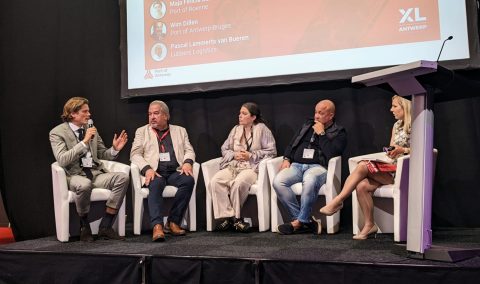
Multi-fuel future: a shared responsibility
In the midst of the energy crisis, questions surrounding the fuel mix that will power the transportation industry in future, while also meeting European Union and International Maritime Organisation target requirements, become increasingly pressing. One thing is clear, transitioning towards a sustainable multi-fuel future will require cooperation.
One option that stands out is biofuels, which are fuels produced in a short period of time, from biomass. Some of the most common types of biofuels are biodiesel, biogas, and methanol. “From a biofuel perspective, the market is becoming increasingly mainstream. (…) The biggest advantage of using biofuels is that you can make an impact right away. There are no huge amendments required for your vessel as it is a drop-in fuel,” explains Bernard van Haeringen, commercial manager at GoodFuels, at AntwerpXL 2022.
“We’re trying to help ship owners in achieving their goals for sustainability, through the implementation of biofuels in their fleets,” he adds. Indeed, “Regulations are kicking in quite soon, both from the EU and IMO perspectives. Next year, emissions trading systems are being introduced, and on the IMO side, we have reporting you need to do on carbon density. We’re working with ship owners to see how we can help them reach their goals.” van Haeringen continues.
One issue, when it comes to the use of biofuels, however, is availability: “We are trying to scale up and make sure there are more biofuel hubs around the world,” says van Haeringen. “For example, there is a lot of breakbulk trade with Africa, but we do not have ports able to deliver our fuels in the regions yet.” Even in regions where biofuels are more widely available, many ports have not invested in the necessary bunkering infrastructure, faced with uncertainty as to which type to invest in.
No silver bullet
“We have to realise that today there is no uniform fuel for the future,” states Wim Dillen, international development manager at the Port of Antwerp-Bruges. Bernard van Haeringen agrees: “As a biofuel supplier, we recognise that there is no silver bullet. We are very aware of the fact that we will probably be a part of a fuel mix. We think about 10% will be biofuels, going forward.” The fuel mix will likely include a variety of biofuels, liquefied natural gas (LNG), synthetic natural gas (SNG), hydrogen, ammonia, and methanol, as well as batteries, powered by various energy resources including wind and solar.
“We as a port have an actual plan to become a multi-fuel port. (…) Preparing for alternative fuels, greener fuels, and more sustainable fuels is both a short-term and long-term initiative. We want to create an environment where as a carrier, you can rely on having a bunker port with those fuels of the future,” continues Dillen. “Obviously, it’s a gradual process and the horizon is to 2050, but given the current energy crisis, there is a greater sense of urgency.”
The port of Rønne shares this ambition. “We want to be the green gas station of the Baltic Sea,” states Maja Felicia Bendtsen, the chief business officer of bulk at the Danish port. “I think we as a port have a responsibility to be facilitators in this transition. (…) We will definitely be in a multi-fuel future, and everyone seems to be a bit unsure of the direction to go in, but we need to, at least now, share the risk. We as ports have an obligation to lead this charge in the shipping industry. We have to invest in being these facilitators.”
A shared responsibility
“From the Port of Antwerp’s point of view, I agree, it’s a shared responsibility and everyone needs to chip in. If the investment is not made now, when will it be possible? It’s a gradual approach, but it needs to be done for future generations,” agrees Dillen. However, while ports may lead the charge in investing, the cost may be too large for a single group or entity to shoulder.
According to Dillen, “Shippers and customers will have to chip in. It’s a shared responsibility and a shared cost.” Pascal Lammerts van Bueren, director of global operations at Lubbers Logistics concurs: “It starts with the company itself, we are willing to invest. Our customers are also willing to do their parts, but in general, everyone needs to share the cost.”
Some customers might be more inclined to chip in than others. Bendtsen explains: “There are different customer segments with different abilities or willingness to pay, but using greener, more sustainable fuels for the offshore wind segment makes sense. In the meantime, we as a port can then prepare to provide this service to other segments.” Eventually, “From a biofuel perspective, the market is becoming increasingly mainstream. So, profitability and doing the right thing can go hand in hand more and more,” says van Haeringen. This will be essential, as “It’s utopian to think we will overcome the desire for the financial gain to help the environment,” according to Lammerts van Bueren.
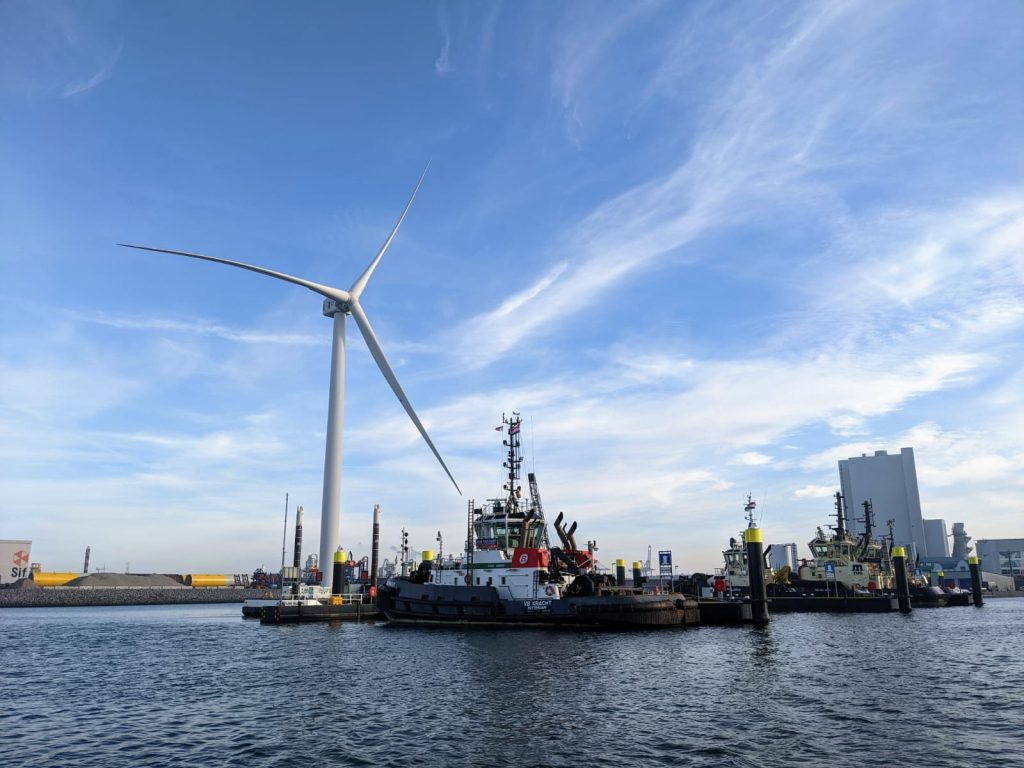
Cooperation is crucial
In addition to sharing costs, sharing knowledge and data will be instrumental in transitioning towards a fuel mix that will be sustainable. “The availability of data is extremely important, as data is the first step towards knowledge creation, without which we cannot design the right solutions,” states Bendtsen. “Over the years, I’ve seen direct competitors cooperate in the implementation of green fuels. You can see there is a willingness to share data and testing results. That makes me very hopeful for the future,” says van Haeringen.
“Le Havre, Rotterdam, Antwerp… We are, of course, competitors, but I find it comforting to see that when it comes to these big questions, we do already work together, and act transparently. If we were the only port making that transformation, it would be senseless. We have to set standards and share our insights. I think we are on that path,” explains Dillen. Indeed, establishing standards and best practices will be key. “We need to standardise, just as with mobile phone charging cables,” echoes van Haeringen.
“We also have to remember that there will be a fight for the fuel. Aviation and the chemical industry will also need to become fossil-free, so I think there will be a fight over the green field between the industries. (…) we need to realise that there will be heavy competition for fuels in the coming years, and costs will get extremely high,” highlights Bendtsen. The breakbulk and project cargo industries thus need to look ahead, in unison.
Fair regulation
Just as the European Union and the International Maritime Organisation, ports should play a part in establishing regulation around fuels, according to Dillen: “From a regulatory point of view, ports too, are regulators. We need to make sure that EU and global laws, and local laws, are respected. We need to make sure we can provide safe, secure bunkering in our ports.” “It is also important for regulators to enable a level playing field, assessing the different types of bio and green fuels in a fair manner, also in regards to production,” says Van Haeringen.
Lastly, Bendtsen stresses the importance of technologically neutral regulation, focusing on the outcome rather than the technology: “ I think regulation should be technology neutral, and a combination of market and nudging will hopefully help us find the right solutions for the future. As a port, I also worry about being obliged to install shore power by 2030, with no obligation to use it. Many ships are equipping themselves with batteries to use in port. I am afraid that as a port we have to make a lot of investments when the shore power might not be used, and this money could have been spent on a sustainability solution more fitting to the port’s needs.”
Decreasing energy needs
Overall, the transition towards a sustainable fuel mix will require investment, shared by all involved, as well as the sharing of data and knowledge, to inform both regulation and action. It is crucial that best practices and standards are set early on to ensure a smooth system transition. Additionally, rapid implementation will be necessary, due to both European energy insecurity deriving from the current geopolitical situation, and because the shipping, logistics and transportation industries will be fighting other industries for sustainable fuels, once strict regulations are implemented.
Establishing new energy sources should also be paired with a reduction of energy needs. One way to overcome the challenges is slow steaming, deliberately reducing the speed of cargo ships to cut down fuel consumption and carbon emissions, for example as brought up by Bendtsen. Dillen also adds that “Changes to a vessel’s design can have a huge impact on fuel consumption. Vessels today already consume much less than they used to. That has to do with new motors, but also ship design. I see room for positive improvement in this area. Furthermore, breakbulk does not fully depend on the shipping industry. It is also the responsibility of the terminals, on land. The breakbulk terminal will become greener. Cranes and equipment can also be designed to be more energy efficient, and run on greener fuels.”
